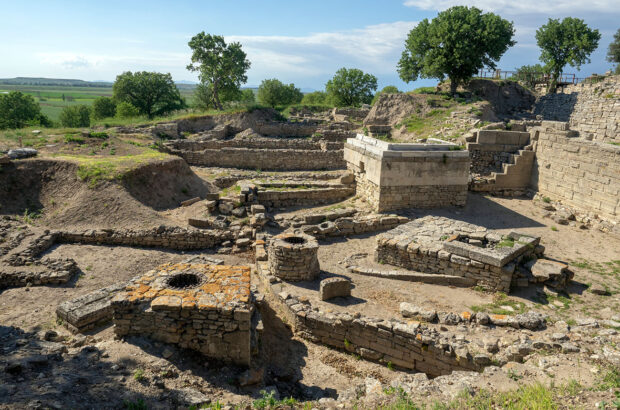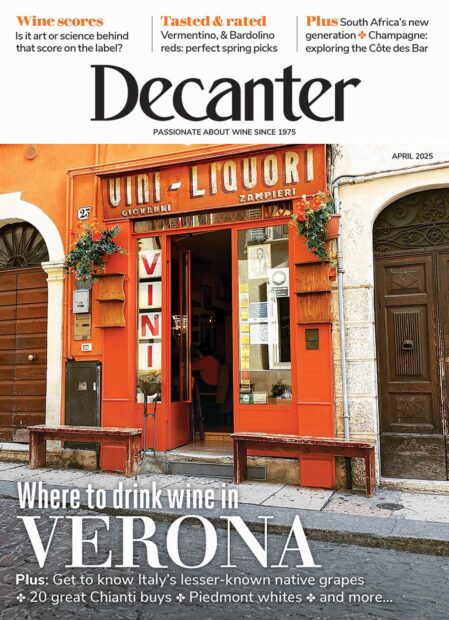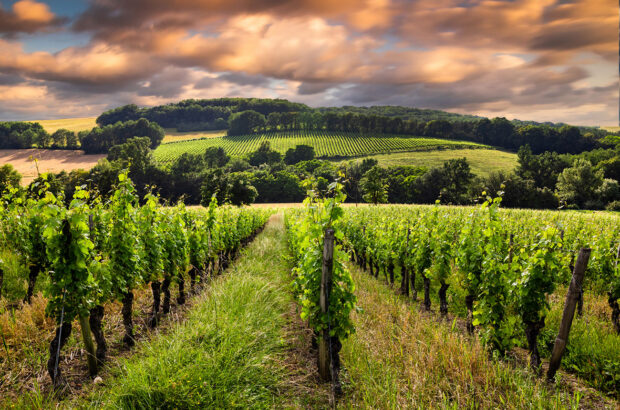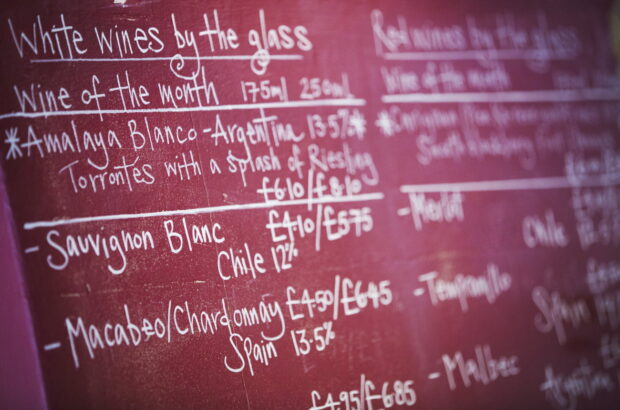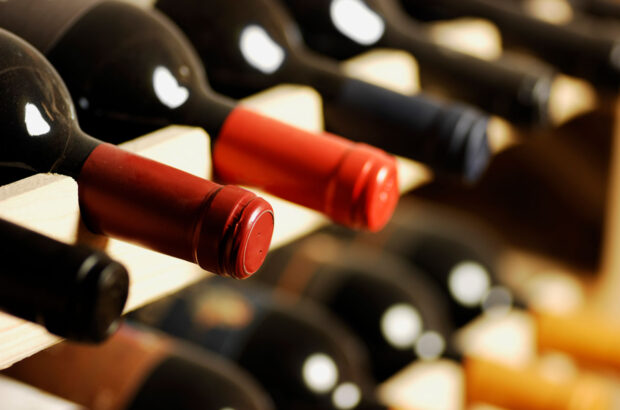In the first decade of the 20th century, when Bodegas Iranzo bottled the wines hailing from Cañada-Honda stating the origin of the grapes on the labels, the producer became the first to release an estate wine. Since then, Iranzo has remained committed to its unique legacy while consolidating a pioneering sustainability strategy in active implementation since the late 1950s.
Under the ownership of the Iranzo family for several generations, Finca Cañada-Honda, is at the heart of their eponymous winemaking project. With historical records showing its existence as far back as 1355, the sprawling estate is of incredible natural and historical significance. Not least because, facing east, at 800 to 900 metres altitude and with sandy limestone well-drained soils, this is a privileged setting for viticulture where grapes develop great aromatic complexity while retaining fresh acidity.

Alfonso Iranzo in the barrel room of his family’s winery
Ahead of its time
It’s with an all-encompassing, integrated understanding of landscape and terroir that Bodegas Iranzo applies its sustainability and conservation initiatives, as reflected in the multiple certifications it has earned over the years.
It all started in 1958, following Enrique Iranzo García’s decision to reforest part of Cañada-Honda to promote biodiversity when such a concept was hardly ever mentioned, let alone understood. A total of 40ha were returned to local species in a groundbreaking, visionary enterprise. Fast forward to 1994 when Bodegas Iranzo sought organic certification for all its lands the very same year that the local organic farming committee was created.
These efforts have since been consolidated and recognised in multiple, complementary, ways. In 1999, Cañada Honda was given hunting refuge status by the Valencian government, the first time the protective measure was applied to private land. The following year, part of the estate became a flora micro-reserve. Meanwhile, in 2019, UNESCO created the Valle del Cabriel Biosphere Reserve, covering nearly all of the estate’s perimeter. Cañada-Honda is also home to the Valencia Anchor Station, a weather station to study climate change, part of NASA and the European Spatial Agency’s detection network.
And, in 2024, the estate was granted Demeter certification after five years of rigorous conversion to biodynamic farming.

Vineyards at Finca Cañada-Honda
Human landscape
Bodegas Iranzo has actively preserved its cultural – as well as its natural – legacy, bringing the interaction between man and nature to the foreground.
Over the past few decades, Bodegas Iranzo have recovered numerous dry-stone walls at Cañada-Honda. In 2022 – following UNESCO’s addition of the Mediterranean building technique to the Intangible Cultural Heritage list – the company committed to the restoration of 40.95 m3 more.
Bodegas Iranzo’s historical buildings, built in 1916 and 1929, have also been carefully restored, and remain operational, one century on, as the production winery and ageing cellar. State-of-the-art winemaking technology has been incorporated into the original structures, preserving the key construction elements and materials. The renovation underscores the building’s original efficiency – such as the natural thermal inertia of the underground barrel room – as well as its aesthetic and spatial qualities.

Bodegas Iranzo in the village of Requena
In tandem, the preservation of natural and built resources simply reflects the coherence of Bodegas Iranzo’s longstanding commitment to sustainability, seen as an inevitable need to safeguard the future, along with the past. A philosophy that is also reflected on the producer’s wine range, produced with a low intervention approach, with purity and drinkability in mind.
Two wines that capture the sustainability approach of Bodegas Iranzo

Tardana Oculta
100% Tardana
Single-variety Tardana hailing from 80-year-old vines. Following a cold maceration, the grapes move into press, with only free-run juice used for this wine. It aged on the lees to develop texture and spend 12 months in bottle prior to release. An elegant, unctuous, food-friendly wine that showcases the quality potential of Utiel-Requena’s flagship indigenous white variety. Organic certified.
 FCH Maceración Carbónica
FCH Maceración Carbónica
Bobal, Garnacha
A wine that captures the terroir, both natural and human, of Cañada-Honda. The fruit from old vines from the ‘tio Pepín’ (uncle Pepín) vineyard is hand harvested and fermented, with whole bunches, with natural yeasts only. The result is a vibrant wine, with luscious fruit and soft tannins, that speaks to the region’s oldest traditions. Organic certified.





